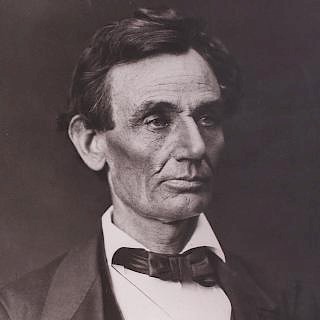Jefferson, Monroe, & Madison, Letters From the Secretary of State to Mr. Monroe, On the Subject of the Attack on the Chesapeake...,
About Seller
6270 Este Ave.
Cincinnati , OH 45232
United States
With offices in Cincinnati, Cleveland and Denver, Cowan’s holds over 40 auctions each year, with annual sales exceeding $16M. We reach buyers around the globe, and take pride in our reputation for integrity, customer service and great results. A full-service house, Cowan’s Auctions specializes in Am...Read more
Two ways to bid:
- Leave a max absentee bid and the platform will bid on your behalf up to your maximum bid during the live auction.
- Bid live during the auction and your bids will be submitted real-time to the auctioneer.
Bid Increments
| Price | Bid Increment |
|---|---|
| $0 | $25 |
| $500 | $50 |
| $1,000 | $100 |
| $2,000 | $250 |
| $5,000 | $500 |
| $10,000 | $1,000 |
| $20,000 | $2,500 |
| $50,000 | $5,000 |
| $100,000 | $10,000 |
About Auction
Jul 21, 2014 - Jul 22, 2014
Cowan's Auctions dawnie@cowans.com
- Lot Description
Jefferson, Thomas, Monroe, James, Madison, James, et al. Letter from the Secretary of State to Mr. Monroe, on the Subject of the Attack on the Chesapeake; the Correspondence of Mr. Monroe with the British Government; and also, Mr. Madison's Correspondence with Mr. Rose on the Same Subject. Washington (DC): A & G. Way, printers, 1808. Printed by order of the House of Representatives, March 23, 1808, as are the following four parts. 8vo, full calf, professionally rebacked, new spine label. Ink writing on blanks unrelated to text. 88pp.
Bound with Letters from the Secretary of State to Mr. Monroe, on the Subject of Impressments &c. Also, Extracts from, and Enclosures in, the Letters of Mr. Monroe to the Secretary of State, Prior to the Joint Mission of Him and Mr. Pinkney. Part II, 137pp. PLUS Letters from the Secretary of State to Messrs. Monroe and Pinkney, on Subjects Committed to their Joint Negotiation; with their Communications to the Secretary of State. Part III, 226pp. PLUS Letter from Mr. Monroe to the Secretary of State Dated Richmond, February 28, 1808. Part IV, 47pp. PLUS Papers Relative to French Affairs, Communicated by General Armstrong to Mr. Monroe. 21pp. PLUS Letter from Mr. Erskine, The British Minister, to the Secretary of State, on the Subject of the British Orders in Council of the Eleventh of November, 1807. Ordered to be printed April 2, 1808. 7pp. PLUS Letter from M. Champagny, the French Minister for Exterior Relations, to General Armstrong, the Minister of the United States, at Paris. Ordered to be printed April 2, 1808. 4pp. AND Report of the Committee to Whom was Referred the Correspondence between Mr. Monroe and Mr. Canning, and Between Mr. Madison and Mr. Rose, Relative to the Attack on the Chesapeake; and also a Communication from the President of the United States of the 30 March Last. Ordered to be printed by the Senate, April 16, 1808. 10pp. Each section with its own title page.
While not all would link the British unprovoked attack on the USS Chesapeake as a direct cause of the War of 1812, it was one of many cases of impressment and British abuses on the high seas that would eventually lead to war. After the ship was attacked, many Americans did call for war. Then-President Thomas Jefferson tried to negotiate a settlement with England, unsuccessfully. He then tried to use economic pressure with an embargo, also not very successful. James Monroe was the minister to the United Kingdom until the end of Feb. 1808, and Madison was the Secretary of State. Still an important event, at the very least in the attention that was generated, in the run-up to the "Second Revolution" in 1812.Wear and toning. Moderate foxing throughout. Still tightly together.Condition
- Shipping Info
-
SHIPPING. At the request of the buyer, Cowan's will authorize the shipment of purchased items. Shipments usually occur within two weeks after payment has been received. Shipment is generally made via UPS Ground service. Unless buyer gives special instructions, the shipping method shall be at the sole discretion of Cowan's Auctions, Inc.. Cowan's is in no way responsible for the acts or omissions of independent handlers, packers or shippers of purchased items or for any loss, damage or delay from the packing or shipping of any property.
-
- Buyer's Premium



 EUR
EUR CAD
CAD AUD
AUD GBP
GBP MXN
MXN HKD
HKD CNY
CNY MYR
MYR SEK
SEK SGD
SGD CHF
CHF THB
THB






